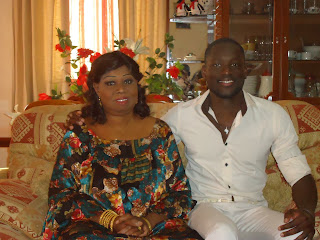Dargaville
businessman John Bishop rolled up his sleeves to help rebuild and renovate a cyclone
ravaged village in Vanuatu.
The
aid project, spear-headed by the Rotary Club of Birkenhead, included rebuilding
a school and constructing ablution blocks, renovating house rooves, upgrading and
fixing water systems among other things in the village of Ueli, in the south eastern
part of the island of Ambrym, following the devastation in 2015 from Cyclone Pam.John spoke to the Rotary Club of Dargaville about his experiences, mostly from his second visit to the small developing country, in October.
He and his wife Margaret, who is a member of the Rotary Club of Dargaville, both initially went to Vanuatu in March/April, for 17 days and started helping with the rebuild.
“I was asked by Rotary if I would like to go and help but it’s not until you actually touch down there, that you realise the need and how helping is all worthwhile,” he says.
On
the second 19-day visit, John returned on his own, while Margaret stayed back to
run the couple’s busy engineering firm.
He
was at first one of nine people, mostly New Zealanders, to go to the island this
time but he ended up as one of only five left to help with the clean-up, when
four had to leave for various reasons.One of the main objectives for the aid workers was to build three sets of double shower units – separately for male and female villagers and for school teachers.
Previously, villagers only had small brick-like rooms for up to 24 people to use.
Other jobs included starting the rebuilding of a school, rebuilding of another structure that had been torn back to its studs and reroofing of the headmaster’s home and a church.
New Zealand pine was mostly used for the reconstructions with a small amount of Australian timber added.
Much of the material from the old buildings was recycled, unless it was unusable.
An 11km trip up a mountain to where a water pipe that fed the village water system, had become blocked, was a mission to access and a real challenge to clear. The village had no water in its communal reservoir tanks and the only water villagers had, was in their own tanks near the houses, from when it rained.
John says the rain literally “buckets” down but was intermittent at best.
“Everything is at a much slower pace there, as it was a three-quarter-hour trip to get to where we had to unblock the pipe,” he says.
The water system, which was in the process of being upgraded by the Seventh Day Adventist Church, had only been replaced once since it was first put in by the American Forces during World War II.
Seven computers acquired from Australia for the school, were solar-powered.
Manual work was quite hard going.
“No such thing as concrete mixers there,” John says. Concrete is all mixed by hand in a ground hole.
He was able to pass on some of his own skills to locals during the construction processes.
John found himself doing various jobs including; building, making concrete, welding, plumbing and plastering.
He says there are still schools, houses and churches that need repair.
“There is some shelter but people seem to take everything in their stride there. They seem to be used to having very little anyway.”
But one of the biggest problems is the lack of ability to store food, which is abundantly grown. Crops such as taro, kumara, kava as well as the storage of imported rice.
Money can be accessed for water storage, so it is possible to obtain funding to build structures as long as they can catch the water.
John is keen to go back to Vanuatu perhaps later next year, to help with more projects such as the building of more structures.
Village structure: An example of a traditional building in Vanuatu.
A kindergarten is planned, which will provide not only water but an educational facility for the village.
SIDE
BAR:
ABC
News website:At the time, aid agencies described Tropical Cyclone Pam, which hit Vanuatu in March 2015, as one of the worst disasters to ever hit the Pacific region.
Packing winds of up to 250 kilometres per hour, the category-five system caused widespread devastation in Vanuatu's southern provinces of Shefa and Tafea.
Have you helped out in a developing country or helped with an environmental disaster clean-up?
Tell us about your experiences. We and our readers would love to hear it!
Contact us in the comments section.
Have a great day.
BTO




















